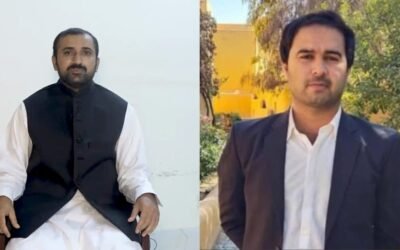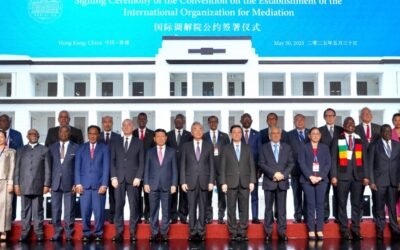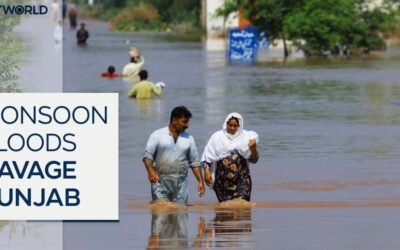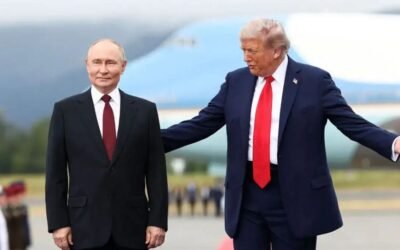The volatile situation in Syria’s southern province of Suwayda has once again erupted into fierce clashes between Druze and Bedouin tribes, signaling a deepening crisis for the newly established Syrian transitional government.
This latest flare-up, coming after a period of precarious calm and amidst a complex web of regional interests, underscores the persistent challenges in achieving genuine stability in post-civil war Syria. The conflict has drawn immediate responses from Syrian authorities, while also highlighting the continuing, controversial role of international actors like Israel.
The Unfolding Crisis in Suwayda: A Chronology of Conflict
The roots of the current conflagration in Suwayda can be traced back to July 11, 2025, when an incident on the Damascus–Suwayda highway reportedly triggered the spiral of violence. A Druze vegetable merchant was assaulted and robbed by members of Bedouin tribes.

Source: Understanding War
This act quickly escalated into a cycle of retaliatory kidnappings, a grim pattern often seen in regions grappling with weakened state authority and simmering communal tensions. By July 13, open armed clashes had erupted between Druze and Bedouin groups in Suwayda city and surrounding villages, quickly spreading to rural areas with reports of heavy weaponry being used. The Damascus-Suwayda highway, a vital artery, was cut off by armed factions, severely impacting the movement of goods and people.

Source: The Guardian
In response to the escalating violence, the Syrian transitional government, led by President Ahmed al-Sharaa, initially deployed the Syrian Armed Forces to the area between July 14-16. This intervention aimed to restore order, and stop the persecution.
However, the presence of government forces, which had been previously accused of abuses against the Druze community, ironically inflamed tensions. Some Druze factions resisted the government’s deployment, seeing it as an attempt to disarm their militias and assert control over the historically autonomous province.
An agreement was reportedly reached on July 15 between Druze leaders and the government, but this was immediately challenged by prominent Druze spiritual leader Hikmat al-Hijri, who called for continued armed resistance against both the government and Bedouin forces.

Source: Reuters
The situation was further complicated by a series of significant Israeli airstrikes. On July 16, Israel carried out heavy air attacks on Suwayda and Syria’s capital, Damascus, including strikes on the Ministry of Defence headquarters and near the presidential palace.
Israel asserted these strikes were to protect the Druze minority in Syria, a claim that Damascus vehemently condemned as a violation of Syrian sovereignty and an attempt to sow division.
The Syrian Network for Human Rights (SNHR) documented a significant number of casualties, reporting at least 169 Syrians killed and over 200 injured in Suwayda Governorate between July 13 and July 16, a number that tragically rose to at least 321 killed and over 430 injured by July 18.
The SNHR has called for independent investigations into alleged widespread human rights violations committed by all factions, including extrajudicial killings and arbitrary detentions.
Syrian Government’s Dilemma and International Brokerage
Following the initial clashes and Israeli intervention, a tentative ceasefire agreement was announced late on Wednesday, July 16, between Syria and some Druze factions. Under this deal, government forces began a withdrawal from the province, with Druze factions and scholars reportedly entrusted with maintaining internal security in Suwayda.
Syria’s interim President Ahmed al-Sharaa had on Thursday, July 17, affirmed this arrangement, pledging security for all, and condemned Israeli strikes.
However, the fragile calm was short-lived. Heavy fighting flared up again early on Friday, July 18. Reports from the UK-based Syrian Observatory for Human Rights (SOHR) indicated renewed clashes west of Suwayda city, “pitting tribal fighters and Bedouin, supported by the authorities on one side, against Druze fighters on the other.”

Source: Al Jazeera
This resurgence of violence prompted the Syrian presidency to issue a statement later on Friday, July 18, asserting that “specialised state bodies are working to deploy forces to de-escalate clashes and resolve the conflict through political and security measures aimed at restoring stability and preventing the return of chaos as quickly as possible.”
Simultaneously, international efforts to de-escalate the situation intensified. The United States ambassador to Turkiye, Tom Barrack, announced on Friday, July 18, that Israel and Syria had agreed to a ceasefire, which was supported by Turkiye, Jordan, and other regional neighbors.
Barrack’s statement also included a broader appeal for unity, urging Druze, Bedouins, and Sunnis to “put down their weapons and together with other minorities build a new and united Syrian identity.” This highlights the transnational nature of the conflict and the ongoing diplomatic efforts behind the scenes.
Regional Geopolitics and Sectarian Undercurrents
The conflict in Suwayda is not merely an internal tribal dispute; it is deeply intertwined with Syria’s post-civil war dynamics and the broader regional geopolitical landscape. The Druze, a distinct ethno-religious minority, has historically maintained a degree of autonomy in Suwayda, often navigating a delicate balance with various ruling powers.
Their armed factions have resisted full integration into central government forces, a point of contention with President al-Sharaa’s transitional administration, which seeks to consolidate authority across the country.
Israel’s involvement, citing the protection of the Druze minority, adds another layer of complexity. While Israel maintains strong ties with its own Druze citizens, its airstrikes in Syria are often viewed by Damascus as a violation of sovereignty and an attempt to destabilize the country.
Reports from the Institute for the Study of War suggest that Israel had reversed a previous demand for Syrian transitional government forces to refrain from intervening in Suwayda, indicating a shift in its stance, perhaps due to the intensifying violence.
Thus, allowing for limited Syrian intervention to restore stability, even as Bedouin tribes call for wider tribal reinforcements from across Syria, potentially drawing in more actors.
Turkey has also weighed in, with President Erdogan condemning Israeli attacks and affirming support for Syria’s sovereignty and territorial integrity, a stance reflecting its own complex regional interests.

Source: AA
The US also did not extend support, or validate, Israel’s unilateral decision to conduct air strikes in Syria; whereas, the interim Syria President has pledged to protect the Druze minority.

Source: Reuters
A Precarious Future
The resumption of heavy fighting in Suwayda, despite announced ceasefires and government withdrawals, underscores the deeply entrenched nature of tribal and sectarian fault lines in Syria.
The Syrian interim government faces an immense challenge in asserting its authority and forging a unified national identity in a country scarred by years of civil war and fractured by internal and external pressures. The renewed deployment of forces, while necessary to prevent further chaos, carries the risk of reigniting broader confrontations.
The path to lasting peace in Suwayda and across Syria remains precarious. It will require not only effective security measures but also genuine political reconciliation, addressing the grievances of diverse communities, and navigating the complex interplay of regional powers.
The immediate future of Suwayda hinges on whether the latest round of political and security interventions can genuinely de-escalate tensions and prevent the tragic cycle of violence from consuming the province further.




























